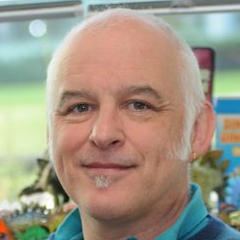You are not currently logged in. Please create an account or log in to view the full course.
The Origin of Humans
- About
- Transcript
- Cite
Human Evolution
In this course, Professor Matthew Cobb (University of Manchester) walks us through the history of how the modern human came to be. The modern version of the human was no more than a smart ape when it first appeared 50-60,000 years ago, but where did it come from, and what happened to it in its early stages? We begin by: (i) investigating the theory of evolution by natural selection and apply it to human evolution, looking at where they came from; before (ii) challenging common misconceptions of the Neanderthal and then examine their interactions with humans in their ~5,000 year overlap, as well as introducing the Denisovans; which follows into (iii) a more detailed description of the discovery of Denisovans, what they might have looked like and how they might have behaved; before finally (iv) taking a closer look at the marks our ancestors made on the world in the form of illustrations, drawings, and handprints on prehistoric cave paintings.
The Origin of Humans
In the first mini-lecture, we begin by appreciating the history of human evolution. To do so, we cover Darwin’s theory of evolution by natural selection, and the three parameters that determine whether a species will evolve over time. The evolution of humans to the modern version we know today is a complex story intertwined with closely related species, and in this lecture we begin to understand where it all began for the modern human. We start by tracing the first steps of humanity across the globe, originating in Africa, and discuss some of the incredible things we have learned about our history, including how humans became endangered by some major event.
Cite this Lecture
APA style
Cobb, M. (2022, August 30). Human Evolution - The Origin of Humans [Video]. MASSOLIT. https://massolit.io/courses/human-evolution
MLA style
Cobb, M. "Human Evolution – The Origin of Humans." MASSOLIT, uploaded by MASSOLIT, 30 Aug 2022, https://massolit.io/courses/human-evolution

